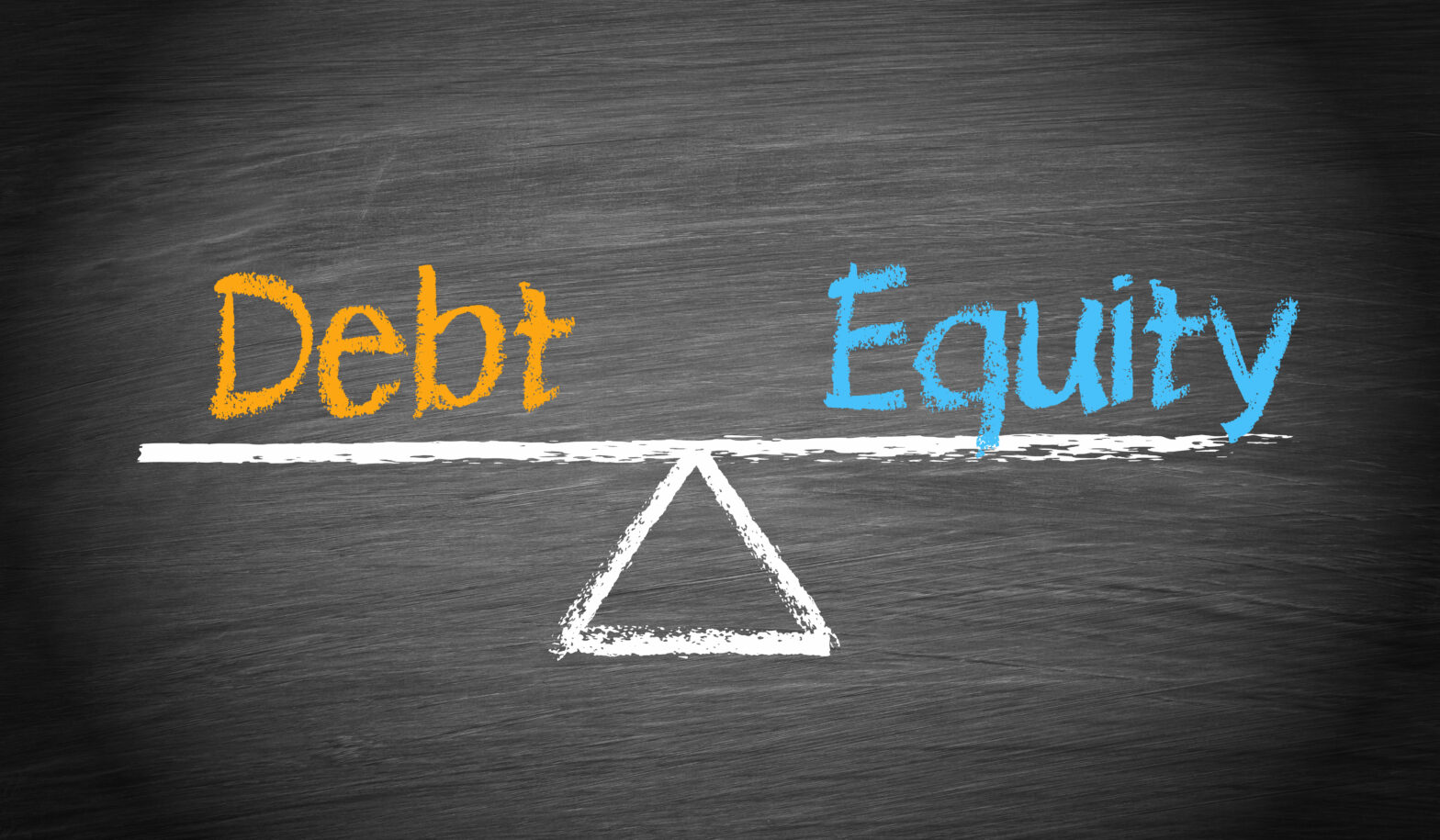Many businesses will require a cash injection at some point in their lifetime. It could be that you need help getting a venture off the ground, you want to buy new equipment for an existing business, or you’re looking to expand. Whatever your reasons for needing extra capital, the funding options available generally fall into the two main categories of debt and equity.
In essence, the question to ask yourself is do you want to borrow money and pay it back, or sell shares and profits in the business? It’s not always a straightforward decision, so here we’ll look at some of the main differences between debt and equity to help you start thinking about the best solution for you.
Equity overview
Equity involves raising capital by giving shares in your business in return for investment. This has grown in popularity as a funding option in recent years, as investors seek new ways to grow their portfolios by investing in smaller businesses. Business owners looking for finance can now approach an increasing selection of venture capitalists, angel investors and crowdfunding platforms.
Key features:
- Sell shares in your business in return for a capital investment
- No need to pay the money back; but investors get a share of your future success
- Can be an attractive option for new businesses with no trading history
- Investors need to be enticed, and will sometimes share control of your business
Debt overview
With debt financing, you are essentially borrowing money from a lender and paying it back, usually over time and usually with interest. As well as traditional banking routes, there are now many sources of finance available in a thriving market of alternative lenders.
Key features:
- Borrow an amount of cash and pay it back
- You will need to satisfy the criteria of the finance provider
- This is often not an option for new businesses with no trading history
- The length of your commitment is usually pre-determined, and you do not sacrifice profits or control
Pros and cons
As with any decision you’re likely to make in business, there are pros and cons to consider for both equity and debt financing. The equity versus debt debate can also depend largely on the stage your business is at.
Equity
If you’re seeking funding for a new business, for example, you might find that you are not able to secure a loan and that equity financing therefore represents your only fundraising option.
A major benefit of equity finance is the potential to raise more money to invest in a growing business than you can secure through a loan. As well as a cash injection, finding the right investor can also be a significant boost to your business in terms of the skills, expertise and contacts they can potentially bring to the table.
Also, investors take on all the risk, which means if things don’t go to plan you don’t have to pay the money back. However, equity involves giving away part of your business, which could mean relinquishing some of the control, as well as giving up a share of the profits in the future. The other downside is that courting investors and drawing up an agreement can be a time-consuming process.
Debt
Debt comes in many forms, and as such it remains a popular choice for businesses seeking finance. This variety means it’s potentially easier to find funding that’s right for your situation — for example, a loan designed for your specific sector or the way you trade.
As long as you meet the repayments, with debt financing you are usually free to spend the money as you choose, whereas with investors to satisfy you might be more restricted. Another important benefit of debt is that once the money is repaid, your relationship with the lender ends, so it can be a simpler and cheaper option in the long-term compared to giving away equity.
There are potential downsides too — debt finance often involves some form of personal guarantee or security, which means your business and/or personal assets could be at risk if you fail to repay the loan. Along the same lines, debt finance may be harder to secure than equity investment, because you have to satisfy the lender’s criteria.
Final thoughts on debt vs equity
The choice between debt and equity finance depends largely on the stage your business is at, how much money you need, and when you need it. It could be that debt isn’t even an option for you if you are unable to satisfy the lender’s criteria, so it’s always worth speaking to an expert to explore all the potential funding options available before ruling debt out as a possible solution.
On the other hand, you might see equity investment as a massive opportunity for your business, especially if you’re able to bring someone on board who has expertise in your industry. In that scenario, you may be able to unlock more growth potential than would be possible with a loan at that stage.
If both options are available to you, it’s a case of deciding what is best for your business, and what feels right to you as a business owner.
Conrad Ford is chief executive of Funding Options, recently described by the Telegraph as “the matchmaking website for small businesses and lenders”. Funding Options has been selected by HM Treasury to help businesses find finance when they’re unsuccessful with the major banks, as part of the Bank Referral Scheme that launched in November 2016.






